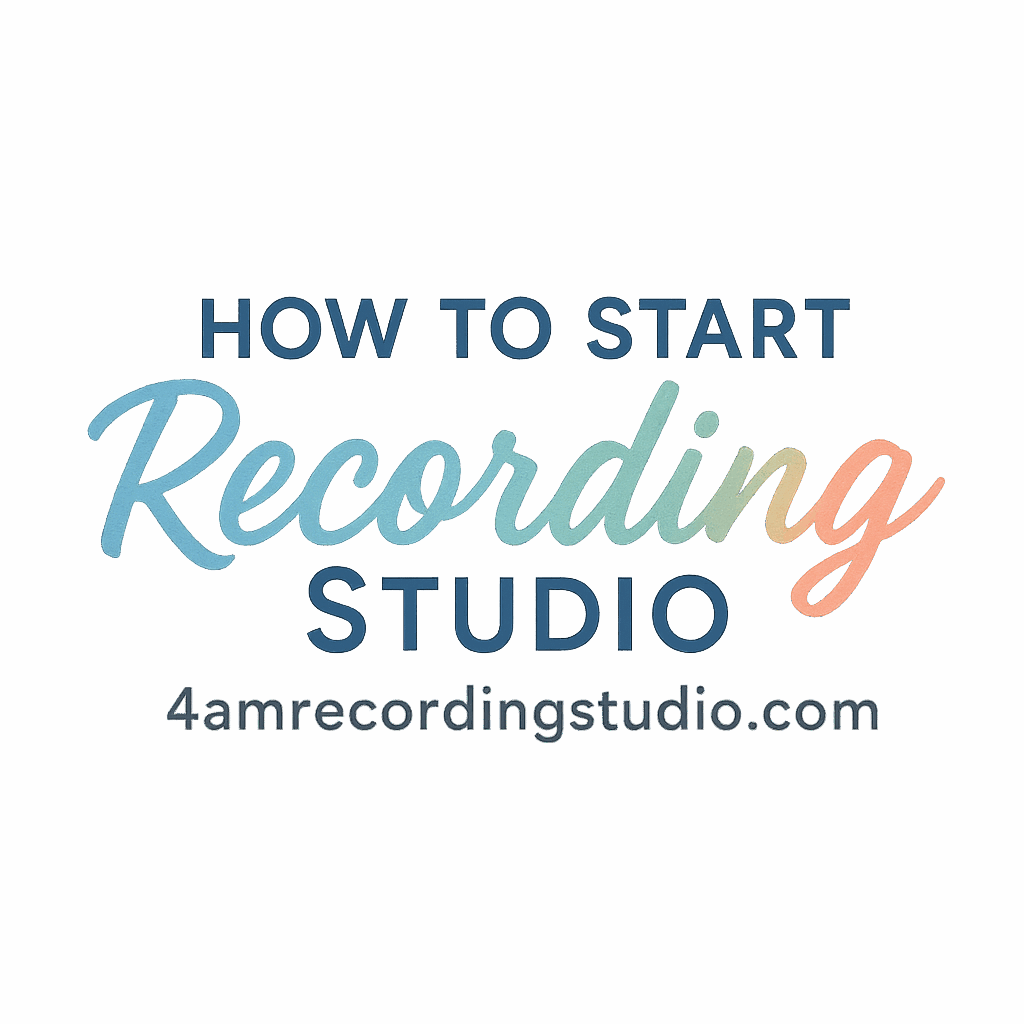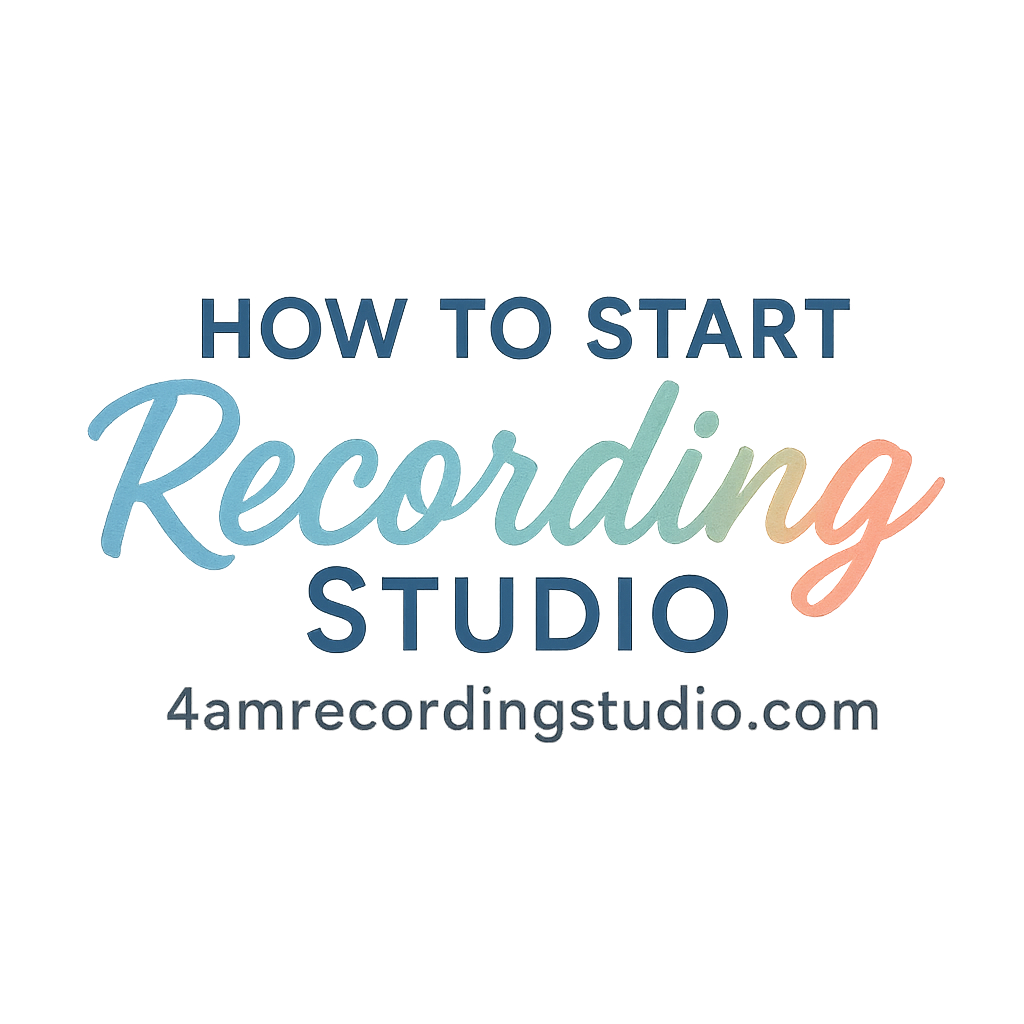So you’re ready to turn your music passion into a real business? That’s exciting! But before you hit record, there’s one major step to get right — registering your recording studio business legally. Skipping this could cost you later in fines, lost clients, or even legal trouble. Don’t worry though, we’re going to break this down step-by-step in the simplest way possible.
Let’s dive into the 7 key steps to getting your recording studio business legally set up for long-term success.
Why Legal Registration Matters for Your Studio
You might think registering your studio sounds like a boring paperwork chore. But it’s so much more than that — it’s your first major move as a business owner.
Protecting Yourself from Liability
When you’re unregistered, you’re the business. That means if someone sues your studio, your personal bank account, house, or gear could be on the line. A legal business shields you.
Building Trust with Clients
Let’s be real — artists, producers, and collaborators want to know they’re dealing with a legit business. Registration gives you credibility, especially when listed on professional directories.
Unlocking Tax Benefits and Business Credit
A registered business opens doors to things like tax write-offs for studio gear, access to grants, and even business loans for your expansion.
Want to grow? You need to be official.
For more on long-term growth, check out Recording Studio Management & Growth.
Step 1: Choose the Right Business Structure
This is your legal foundation. The structure you choose determines how you’re taxed, your liability, and how you operate.
Sole Proprietorship vs. LLC vs. Corporation
- Sole Proprietorship: Easiest to set up, but offers no personal protection.
- LLC (Limited Liability Company): Protects personal assets and offers flexibility.
- Corporation: Best for big companies, more complex and costly.
Why an LLC is Usually Best for Studios
An LLC hits the sweet spot. It’s simple, shields your personal assets, and offers tax flexibility.
More advice on business setup? Visit Recording Studio Business Planning.
Step 2: Pick a Unique and Legal Business Name
Your business name is more than just a cool phrase — it’s your identity.
Search Availability in Your State
Every state has a business name database. Make sure no one else is using your studio name.
Trademark Considerations
If you’re building a serious brand, you may want to trademark your studio’s name nationwide.
You don’t want a cease-and-desist ruining your hustle.
Step 3: Register Your Business with the State
This is when your studio becomes official.
How to File Articles of Organization
You’ll need to submit this to your Secretary of State. It includes your studio name, business address, and registered agent info.
Most states let you do this online for under $150.

Getting Your EIN from the IRS
An EIN (Employer Identification Number) is like a social security number for your business. You’ll need it to:
- Open a business bank account
- File taxes
- Hire people
Apply free at the IRS website.
Step 4: Get the Required Business Licenses and Permits
Legal doesn’t just mean state registration. You may need local approvals too.
Local Business License and Zoning Compliance
Some cities require business licenses even if you’re home-based. And zoning laws may restrict music-related work in residential areas.
Call your city clerk’s office to be sure.
If you’re still setting up, don’t miss our Recording Studio Setup Basics guide.
Music-Specific Licensing (If Applicable)
Are you releasing or distributing music from your studio? You may need rights and permissions from organizations like ASCAP, BMI, or SoundExchange.
Step 5: Set Up a Business Bank Account and Accounting System
Here’s where you start thinking like a business owner, not just a music creator.
Why You Must Separate Finances
Mixing personal and business funds is a no-go. It can ruin your legal protection and mess up your taxes.
Get a business checking account and a debit or credit card just for studio expenses.
Basic Accounting Tools and Tips
Use tools like QuickBooks, Wave, or even Google Sheets to track:
- Session income
- Equipment purchases
- Studio rent
- Monthly revenue
Explore more recording studio earnings tips.
Step 6: Draft Key Legal Documents for Your Studio
This is one step most beginners skip — and regret later.
Service Agreements and Terms
Set clear expectations with clients. A solid contract should cover:
- Payment terms
- Cancellation policy
- Usage rights for recorded material
Contracts for Collaborators and Clients
When you’re working with beatmakers, engineers, or artists, a collaboration agreement keeps everyone protected and ensures shared credits and profits are clear.
Start exploring contracts with our Recording Studio Marketing & Branding tips.
Step 7: Insure Your Recording Studio Business
You’ve got gear. You’ve got clients. You need insurance.
Types of Insurance You Need
- General Liability: Covers accidents in your studio.
- Equipment Insurance: Covers your valuable mics, boards, and computers.
- Professional Liability: Protects you from legal action over unsatisfied clients.
How to Get the Right Policy
Start with local insurance brokers or online platforms like Hiscox or Next Insurance. Compare quotes and make sure coverage fits your studio size and location.
Common Mistakes to Avoid When Registering
- Skipping the business license
- Not separating personal and studio finances
- Forgetting to draft contracts
- Ignoring local zoning laws
- Operating without insurance
These slip-ups can turn your dream studio into a nightmare fast.
Conclusion
Registering your recording studio business legally might seem like a lot, but it’s one of the smartest moves you’ll make. It protects you, positions you for growth, and shows the world you’re serious about your craft.
Follow these 7 steps, and you’ll have the legal foundation to take your studio from a side hustle to a full-blown music empire.
And hey, if you’re just getting started, don’t miss our beginner-friendly content on how to start a recording studio and gear you actually need.
FAQs
1. Can I run a recording studio out of my home legally?
Yes, but you need to check local zoning laws and get a home occupation permit if required.
2. How much does it cost to register a studio business?
It ranges from $50–$500 depending on your state and whether you hire help.
3. Do I need a license to record other artists?
Not always, but you should have contracts and business licenses in place.
4. What insurance is best for small studios?
Start with general liability and equipment insurance. Expand as your business grows.
5. Can I use my personal bank account for studio income?
Technically yes, but it’s a bad idea legally and financially. Always separate your finances.
6. What if my studio name is already taken?
You’ll need to pick another one. Try using a variation or unique twist and check trademarks too.
7. How can I get more clients after registering my studio?
Start by building your brand and networking. Our marketing and branding section has great tips.


